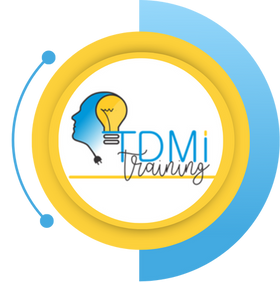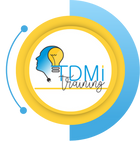Understanding SANS 10142-1:2024 — What Changed and How It Affects Your Compliance
Introduction
The SANS 10142-1:2024 standard is the cornerstone of electrical installation regulations in South Africa. Updated periodically by the South African Bureau of Standards (SABS), this document outlines the minimum safety and technical requirements for electrical installations. The 2024 revision brings significant updates that electricians, contractors, and compliance inspectors must understand to ensure installations remain safe and legally compliant.
This guide breaks down what’s new in SANS 10142-1:2024, how these changes impact your work, and what steps professionals and businesses must take to stay compliant. Whether you’re a registered electrician, a business owner, or a compliance officer, understanding these updates is essential for legal, operational, and safety reasons.
What Is SANS 10142-1?
The Foundation of Electrical Safety
SANS 10142-1 — officially known as The Wiring Code for the Wiring of Premises — is the South African national standard that governs electrical installations in all buildings, including homes, offices, and industrial facilities.
It ensures that electrical systems are designed, installed, and maintained safely to prevent hazards such as electrical fires, shock, and equipment failure.
Why It Matters
The standard forms the legal foundation for Certificates of Compliance (COCs) and is referenced in Occupational Health and Safety (OHS) Act regulations. Without adherence to SANS 10142-1, no installation can be certified as compliant — making it crucial for both safety and legal operation.
Why SANS 10142-1 Was Updated in 2024
SABS periodically reviews its standards to align with global safety protocols and adapt to technological advances. The 2024 update reflects developments in renewable energy systems, smart technologies, and sustainable construction practices.
Modern Technology Integration
With the rise of solar PV systems, battery storage, and electric vehicles, older versions of the code lacked detailed guidance. The 2024 update now integrates clear specifications for these technologies, ensuring they operate safely within electrical networks.
Safety and International Alignment
The revision aligns South Africa’s standards more closely with IEC (International Electrotechnical Commission) guidelines, enhancing safety and facilitating international compatibility for local electricians and manufacturers.
Major Changes Introduced in SANS 10142-1:2024
Renewable Energy and Solar PV Systems
The most notable update involves detailed sections on solar installations, including grounding, inverter specifications, and isolation requirements. This ensures that both on-grid and off-grid systems meet the same safety benchmarks.
Battery Energy Storage Systems (BESS)
For the first time, battery systems are explicitly covered. Installers must follow specific wiring, ventilation, and fire protection standards when integrating lithium-based systems into properties.
Surge Protection and Arc Faults
To reduce electrical fires, new requirements for surge protective devices (SPDs) and arc fault detection devices (AFDDs) have been added.
Earthing and Bonding Improvements
The code now specifies stricter earthing and bonding methods to prevent potential differences and ensure system stability.
Impact on Electricians and Contractors
Electricians must adapt to new installation methods, particularly in solar and smart system projects. Registered Electrical Contractors (RECs) are now required to demonstrate competence in handling hybrid systems that integrate grid, generator, and renewable energy sources.
Additionally, tools and testing instruments must meet updated calibration standards, and installation reports must include expanded documentation on protection devices, grounding, and energy storage setups.
Failure to comply can lead to penalties, suspension of registration, or invalidation of issued COCs — emphasizing the importance of continuous professional development.
Changes to Testing and Inspection Procedures
The testing phase now includes additional checks for renewable and smart technologies. Inspectors are expected to verify integration safety between systems and confirm that isolation and surge protection measures are properly implemented.
Key testing updates include:
-
Verifying inverter synchronization with grid supply
-
Confirming voltage and frequency stability under variable load
-
Enhanced insulation resistance testing for hybrid circuits
-
Documenting compliance using the revised COC reporting format
These procedures ensure installations are safe, stable, and aligned with 2024 regulatory expectations.
How the Updates Affect Electrical Compliance Certificates (COCs)
A COC certifies that an installation meets the SANS 10142-1 standard. With the new update, electricians must ensure installations reflect the 2024 edition’s changes.
For example, when issuing a COC for a solar installation, the installer must now include detailed records of panel orientation, inverter compliance, and protection devices used.
Failure to apply the correct version of the standard could lead to the COC being invalid or legally challenged, which has implications for property sales, insurance claims, and liability protection.
How Businesses and Homeowners Are Affected
While the updates primarily impact electricians, homeowners and businesses also need awareness.
-
Property owners must ensure that all new installations and alterations are done under the latest SANS 10142-1 edition.
-
Real estate transactions now require updated COCs referencing 2024 standards.
-
Insurance companies may reject claims if electrical systems do not comply with the current code.
These implications make it essential for both contractors and clients to verify that compliance certificates are issued under the correct standard revision.
Training and Upskilling for Compliance — The Role of TDMI
Staying compliant requires up-to-date training, and that’s where TDMI (Training Development Manufacturing Industries) plays a crucial role.
Accredited Training Aligned with 2024 Standards
TDMI offers Electrical Compliance Certificate (COC) and Wireman’s License training, now fully aligned with SANS 10142-1:2024. Their courses help electricians understand new installation rules, safety practices, and documentation requirements.
Bridging Knowledge Gaps
Many electricians were trained under older versions of the standard. TDMI’s programs include practical simulations and real-world case studies to bridge these gaps, ensuring graduates are confident and compliant in applying updated regulations.
Recognised by Regulatory Bodies
TDMI’s programs are recognised by EWSETA and compliant with Department of Employment and Labour (DOL) requirements, making them a trusted pathway for upskilling.
Get this Wiring Wisdom Series from TDMI.
Preparing for Audits and Inspections
To ensure compliance, businesses and electricians must maintain detailed installation documentation and proof of material certification. The 2024 update emphasizes traceability — every protective device and wiring component must be certified and listed in project records.
Practical steps include:
-
Conducting internal audits using checklists based on the new code
-
Updating safety files and installation manuals
-
Scheduling refresher training for technical teams
Being proactive not only ensures compliance but also strengthens client trust and safety assurance.
Common Mistakes to Avoid Under SANS 10142-1:2024
Many compliance failures result from oversight or outdated habits. Common mistakes include:
-
Using pre-2024 wiring configurations
-
Failing to install surge or arc fault protection
-
Not documenting renewable system integration
-
Ignoring updated grounding techniques
Electricians can prevent these issues by reviewing the latest SABS handbook and ensuring all installations undergo third-party verification before certification.
The Future of Electrical Standards in South Africa
SANS 10142-1:2024 is part of a broader shift toward smart, sustainable, and safer energy systems. Future updates are expected to address evolving challenges like AI-driven energy management, IoT integration, and microgrid connectivity.
By keeping up with training through organizations like TDMI, electricians will remain at the forefront of this evolution, ensuring South Africa’s electrical systems are both compliant and future-ready.
Conclusion
The release of SANS 10142-1:2024 marks a critical advancement in South Africa’s electrical compliance landscape. From renewable energy integration to enhanced safety mechanisms, these updates reflect the country’s commitment to modern, sustainable, and safe infrastructure.
Electricians and businesses that adapt early — through training, updated practices, and diligent documentation — will not only remain compliant but also gain a competitive advantage.
TDMI’s training programs offer the ideal platform to master these updates and ensure your certification processes align with the latest national standards. Staying informed and proactive is the key to safety, compliance, and professional excellence.


Leave a comment